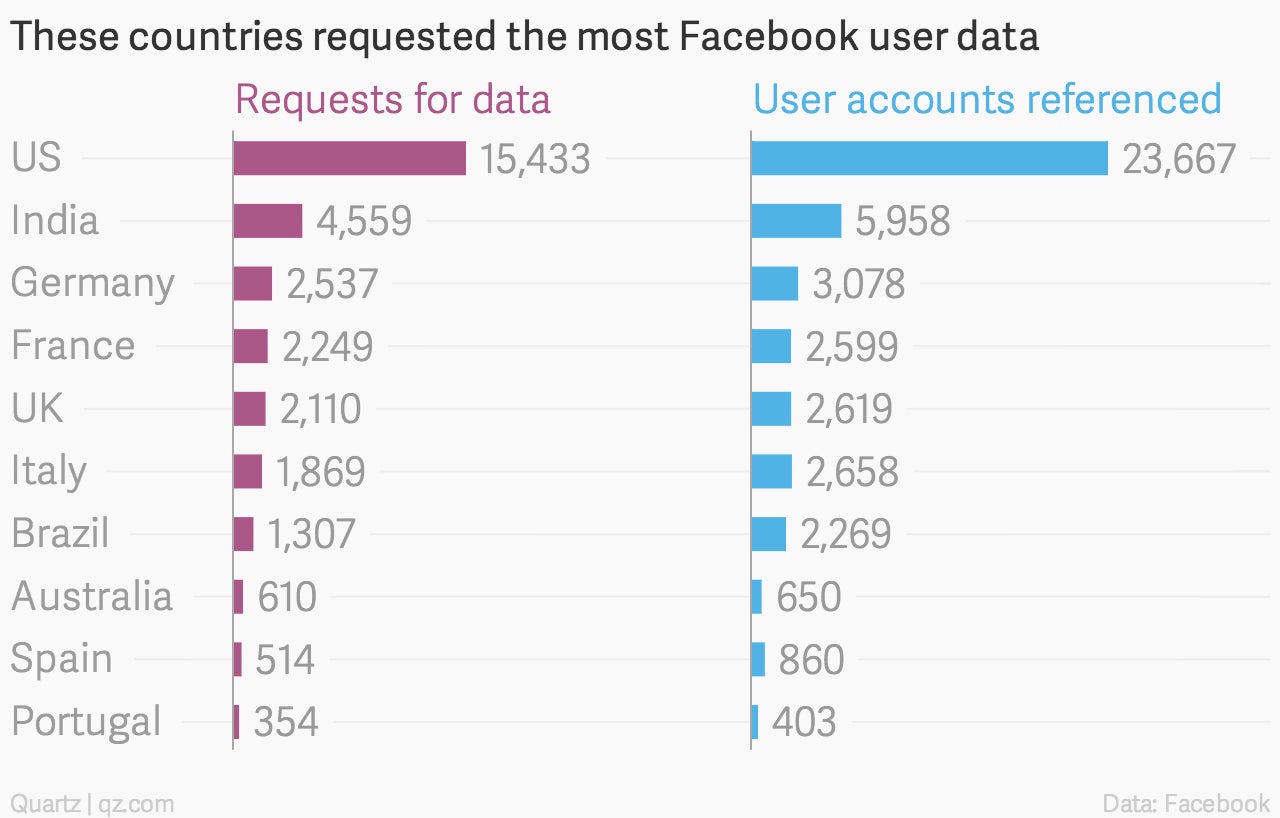Facebook says the US is the worst offender in a huge leap in requests for user data
Global government requests for Facebook user information in the first half of 2014 surged by a quarter, compared with the second half of 2013, hitting nearly 35,000, according to a new report from Facebook. Some 15,433 of those requests were from US law enforcement agencies—a jump of 23% versus the last six months of 2013.


Global government requests for Facebook user information in the first half of 2014 surged by a quarter, compared with the second half of 2013, hitting nearly 35,000, according to a new report from Facebook. Some 15,433 of those requests were from US law enforcement agencies—a jump of 23% versus the last six months of 2013.
These are the countries that requested the most user information from Facebook from January to June of 2014:

As you can see from the chart, just looking at the number of requests doesn’t tell us the actual number of people governments are trying to track via Facebook. That’s because many of the requests are bulk warrants that count as a single “request” even though they demand Facebook fork over info on dozens of users at once. In the US, for example, governments requested data for 23,667 users in the first half of the year, 26% more than the number it requested in the second half of 2013. Overall, Facebook fielded requests for 49,479 of its users’ data.
It’s hard to know exactly what governments want the data for, though at least in the US’s case, most requests came from search warrants and subpoenas used in criminal investigations. For example, in a June blog post, Chris Sonderby, Facebook’s deputy general counsel detailed how a New York court order requested almost all data Facebook had on 381 people, including photos and private messages. Of those people, 62 were charged in a disability fraud case, he wrote.
Facebook is fighting against these kinds of bulk warrants, wrote Sonderby at the time, because ”these overly broad warrants—which contain no date restrictions and allow the government to keep the seized data indefinitely—violate the privacy rights of the people on Facebook and ignore Fourth Amendment safeguards against unreasonable searches and seizures.”
The social media giant doesn’t always comply with requests. For the 20 countries with the most requests, Facebook provided at least some data for 52% of the requests, on average (in the US that percentage 80% and in the UK it was 72%).
Before releasing data Facebook checks whether it’s legally obligated to do so. Its lawyers then sometimes reject these requests altogether or, for those they deem “overly broad or vague,” require governments to resubmit requests with more specific parameters, according to Facebook’s blog post on this latest data release. “While we recognize that governments need to take action to protect their citizens’ safety and security,” wrote Facebook’s Sonderby in the post, “we believe all government data requests must be narrowly tailored, proportionate to the case in review, and subject to strict judicial oversight.”